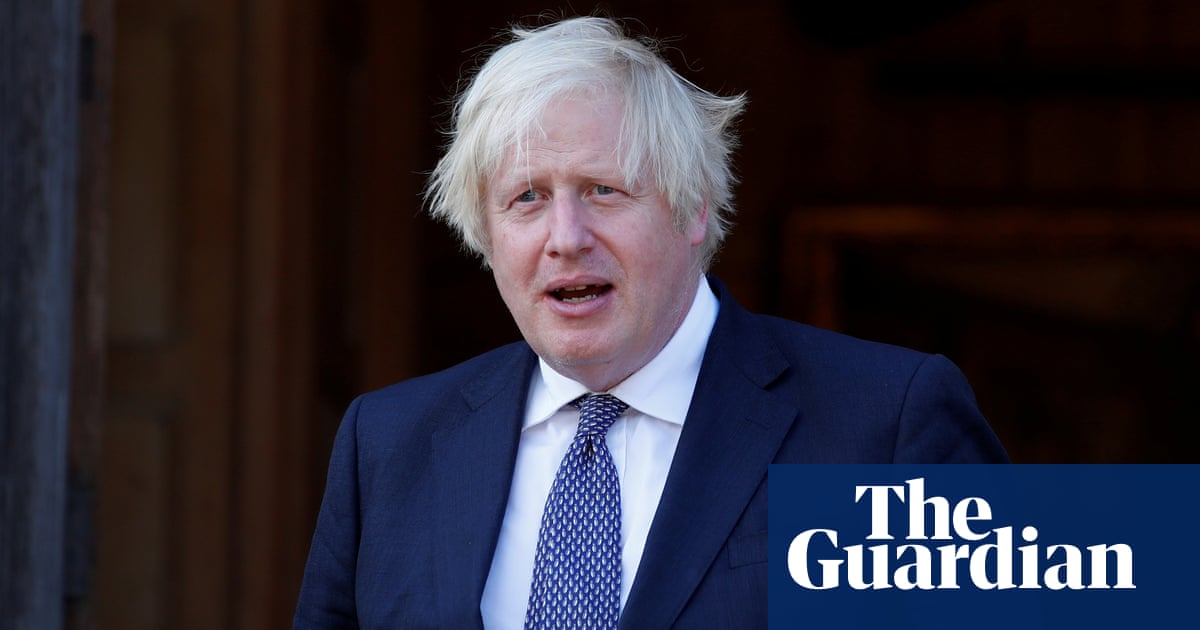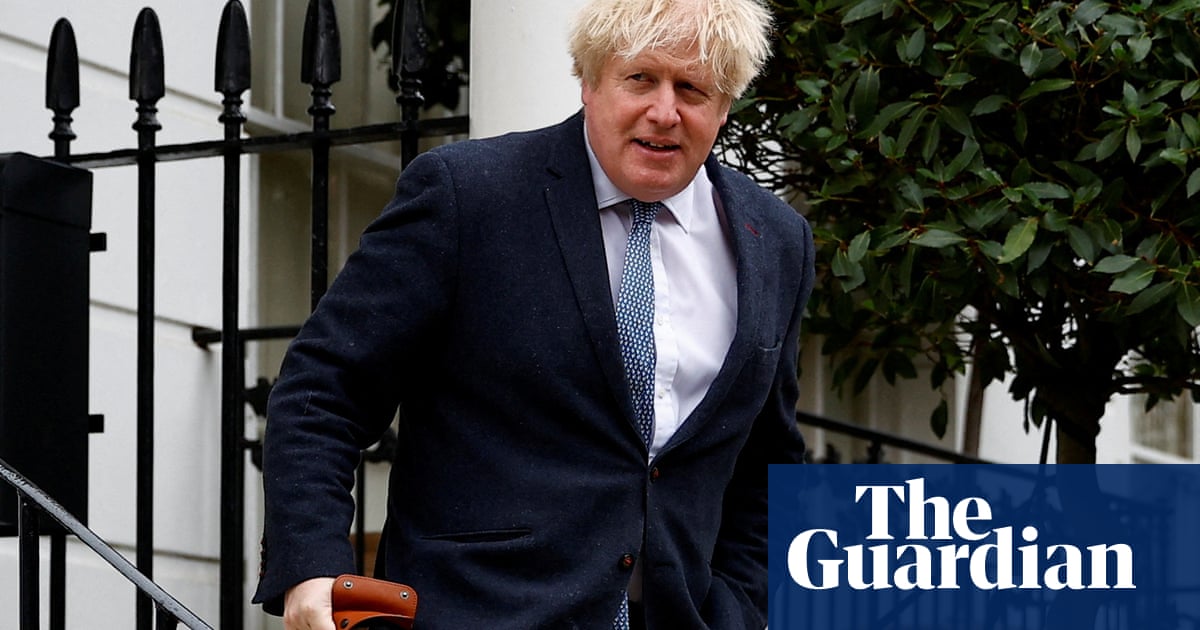
Downing Street has denied Boris Johnson is the victim of a politically motivated stitch-up, as Rishi Sunak sought to distance himself from a fresh police investigation into further Partygate claims.
To quell fury from the former prime minister’s allies, No 10 stressed Sunak had no involvement in the decision to hand over Johnson’s pandemic diaries, which were said to reveal more rule-breaking events at Chequers.
“We have not seen the information or material in question,” said Sunak’s official spokesperson on Wednesday, adding that ministers had “no involvement in this process and were only made aware after the police had been contacted”.
Police were contacted on 16 May about the issue, according to the Cabinet Office. Thames Valley police said they received a report about “potential breaches” of Covid rules on 18 May, while Scotland Yard said the bundle was passed to it the following day.
Sunak found out that the police had been informed at some point between 19 May and the facts becoming public on 23 May, No 10 said, without offering a specific date.
Downing Street refused to say whether Johnson would lose the Conservative whip should he be charged with further lockdown breaches, with Sunak’s press secretary saying No 10 would not respond to questions about the “hypothetical” scenario.
However, they were much more categorical that Sunak had not attended the events in contention at Chequers. Asked whether the-then chancellor broke Covid rules at the Buckinghamshire mansion, the press secretary said: “No, definitely not.”
Earlier, Johnson’s allies issued a dramatic warning to Sunak, saying they would meet on Wednesday to “consider options” about how to force the government to stop “witch-hunts”.
They upped the ante on the already febrile Tory benches by calling the decision to hand over evidence of gatherings at Chequers during Covid the “final straw”.
Johnson’s supporters accused Cabinet Office ministers of having signed off the decision to pass on the former prime minister’s diaries to police. This was denied by both the justice secretary, Alex Chalk, and the Cabinet Office.
Chalk suggested officials would have been lampooned whether they had passed on the documents or chosen to withhold them, adding: “Whether it was the right judgment turns on what’s in those documents.”
A spokesperson for the Cabinet Office added: “Ministers played no role in deciding whether the information should be handed over to the police.”
Johnson had given the government legal department – instructed by the Cabinet Office – a number of documents as they prepared his defence for the official public inquiry into the pandemic.
However, when concerns were flagged to senior officials in the Cabinet Office, they felt obliged under the civil service code to refer the material to the police.
Johnson has threatened to sue the Cabinet Office in retaliation, according to the Daily Mail.
On Wednesday morning, an ally of Johnson’s said: “Boris has been supporting the government, but this act is final straw. There are a growing number of MPs who want the party leadership to act to stop these witch-hunts and a group of MPs will meet today to consider options. Meanwhile, members across country are being organised.”
Despite the row and Sunak still deciding whether to launch an investigation into his home secretary, Suella Braverman, for potentially breaching the ministerial code, Chalk called the prime minister “a man of consummate integrity”.
The two standards issues are separate, but some Tory MPs are trying to draw a link between them and other incidents, such as bullying claims against Dominic Raab, to accuse the Whitehall “blob” of underhandedly trying to remove politicians from office.
Labour has called for Sunak’s government to stop using taxpayers’ money to cover Johnson’s legal costs.
Anneliese Dodds, the Labour chair, told Sky News the prime minister seemed to be “too weak to stand up to interest in his party” and there was a “very clear” moral argument for blocking Johnson receiving any more public support while he made millions from his post-No 10 speaking circuit.
Johnson is still subject to an investigation by the privileges committee, which is looking into whether he misled parliament and can levy a sanction, if it finds he did. A suspension from parliament could lead to a byeelection.
The seven-member committee, with a Tory majority and Labour chair, postponed its weekly meeting on Tuesday in light of the new evidence about events at Chequers and is due to meet on Wednesday instead.












